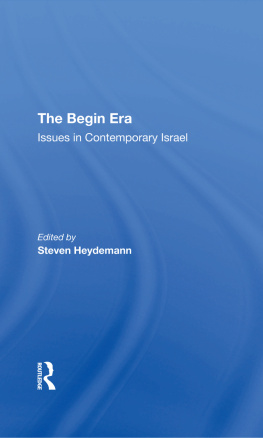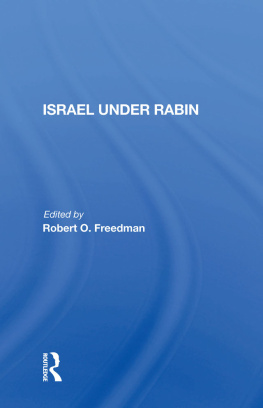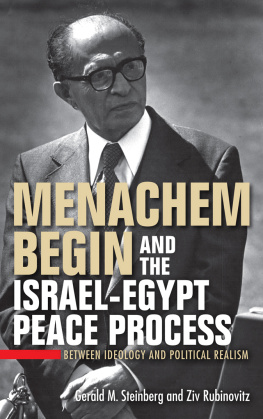The Begin Era
Westview Replica Editions
The concept of Westview Replica Editions is a response to the continuing crisis in academic and informational publishing. Library budgets for books have been severely curtailed. Ever larger portions of general library budgets are being diverted from the purchase of books and used for data banks, computers, micromedia, and other methods of information retrieval. Interlibrary loan structures further reduce the edition sizes required to satisfy the needs of the scholarly community. Economic pressures on the university presses and the few private scholarly publishing companies have severely limited the capacity of the industry to properly serve the academic and research communities. As a result, many manuscripts dealing with important subjects, often representing the highest level of scholarship, are no longer economically viable publishing projects--or, if accepted for publication, are typically subject to lead times ranging from one to three years.
Westview Replica Editions are our practical solution to the problem. We accept a manuscript in camera-ready form, typed according to our specifications, and move it immediately into the production process. As always, the selection criteria include the importance of the subject, the work's contribution to scholarship, and its insight, originality of thought, and excellence of exposition. The responsibility for editing and proofreading lies with the author or sponsoring institution. We prepare chapter headings and display pages, file for copyright, and obtain Library of Congress Cataloging in Publication Data. A detailed manual contains simple instructions for preparing the final typescript, and our editorial staff is always available to answer questions.
The end result is a book printed on acid-free paper and bound in sturdy library-quality soft covers. We manufacture these books ourselves using equipment that does not require a lengthy makeready process and that allows us to publish first editions of 300 to 600 copies and to reprint even smaller quantities as needed. Thus, we can produce Replica Editions quickly and can keep even very specialized books in print as long as there is a demand for them.
About the Book and Editor
The Begin Era: Issues in Contemporary Israel
edited by Steven Heydemann
The years of Menachem Begin's leadership were among the most turbulent in Israeli history. Domestically, the preeminence of the Labor Alignment was successfully challenged, the Likud government failed to reduce Israel's high inflation rate, military and security expenditures reached new highs, and the politicization of economic policy increased. Internationally, although Israel's policy toward the occupied territories and its regional strategy were the focus of domestic and international debate, Begin's policies--departures from earlier norms--did successfully define Israel's foreign policy agenda, and his outlook is likely to continue to influence policy considerations. The contributors to this volume explore how Israel changed under Begin, the source of those changes, and how Israel is likely to evolve in a post-Begin era.
Steven Heydemann is director of programs at the Middle East Institute in Washington, D.C.
Published in cooperation with the Middle East Institute, Washington, D.C.
The Begin Era
Issues in Contemporary Israel
edited by
Steven Heydemann
First published 1984 by Westview Press, Inc.
Published 2019 by Routledge
52 Vanderbilt Avenue, New York, NY 10017
2 Park Square, Milton Park, Abingdon, Oxon OX14 4RN
Routledge is an imprint of the Taylor & Francis Group, an informa business
Copyright 1984 Taylor & Francis
All rights reserved. No part of this book may be reprinted or reproduced or utilised in any form or by any electronic, mechanical, or other means, now known or hereafter invented, including photocopying and recording, or in any information storage or retrieval system, without permission in writing from the publishers.
Notice:
Product or corporate names may be trademarks or registered trademarks, and are used only for identification and explanation without intent to infringe.
Library of Congress Cataloging in Publication Data
Main entry under title:
The Begin era.
(A Westview replica edition)
1. Israel--Politics and government--Addresses, essays, lectures.
2. Begin, Menachem, 1913- --Addresses, essays, lectures.
I. Heydemann, Steven.
DS126.5.B358 1984 956.94'054 84-19536
ISBN 13: 978-0-367-29031-3 (hbk)
Contents
Bernard Reich
Jerrold D. Green
Zeev Schiff
Gary S. Schiff
Myron J. Aronoff
Ian S. Lustick
David I. Fand
Kenneth A. Stammerman
Howard Pack
Menachem Begin's abrupt departure from Israeli political life marks the end of an era in Israeli politics. Nonetheless, the debate over Begin's place in Israel's history and the impact of his policies continues with undiminished intensity. As some have noted, his presence loomed larger in the campaign that preceded the July elections than that of his successor, Yitzhak Shamir.
The papers in this volume represent an effort to confront these issues by assessing the changes and forces that emerged in Israel during Begin's tenure as prime minister and their continuing influence in the period since his leaving office. The papers were presented at a conference held at the Johns Hopkins University School of Advanced International Studies on January 20, 1984. Much has transpired since these papers were prepared, but the basic issues they raise are no closer to a solution today than they were in January.
This collection covers three thematic sections: Israel's foreign and defense policies, political and ideological trends, and the status of Israel's economy. In the first section, Bernard Reich evaluates the "special relationship" between the U.S. and Israel, while Jerrold Green discusses U.S.-Israeli relations in the broader context of U.S. Middle East policy. Zeev Schiff's assessment of relations between the government and the armed forces presents a disturbing view of the erosion of government control over the actions of the military.
In the second section, Gary Schiff reaffirms the centrality of the religious parties, highlighting the debate over how to respond to the problems that have accompanied the expansion of religious politics. Myron Aronoff explores the reemergence of ideology in Israel during the Begin era and the weakening of the cohesive values and perceptions that bind Israelis together. In his discussion of the West Bank as a factor in Israeli politics, Ian Lustick concludes that the "point of no return" involves both the physical integration of the West Bank into Israel and the psychological threshold beyond which the majority of Israelis cease to distinguish between the two.
In the third section, David Fand and Kenneth Stammerman both argue that the politicization of economic policy-making has become more pervasive and threatens Israel's economic health in the years ahead. Howard Pack places Israel's economy in a comparative framework to evaluate the country's economic difficulties in relation to those of other nations at a similar stage of development.
In many ways, Israel has not fully emerged from the Begin era. Perhaps more than any other Israeli leader since David Ben-Gurion, Begin has shaped Israel's options and defined issues that Israelis are struggling with today. It is our hope that the following papers represent a small contribution to the understanding and interpretation of that struggle.













